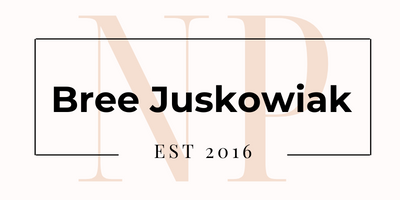Mistakes To Avoid On Your Resume
I’ve seen a fair number of nurse practitioner resumes in my day. Seems like my large group is always cycling through new hires. In addition to that I look at all the resumes that come through for my consultation/interview prep business. It’s interesting to me the variety of what folks are doing across the nation. When I wrote my first NP resume I assumed we all heard the same HR lecture and wrote them the same. Most people have professional looking resumes but there are some industry specific issues that I find am repeatedly addressing with clients. In this post I’ll discuss the most common mistakes I see on the nurse practitioner resume.
In general many nurse practitioners understand that the stakes are higher in the NP job market and many people hire professional resume writers. It’s therefore rare that I come across standard errors like spelling or grammer. The mistakes I see correspond with factors that only a nurse practitioner or physician hiring team would notice. This is why I advise folks - if you’re going to hire a resume writer find one that works in the field you want to enter. They just get it. They know what hiring teams are looking for in an employee and what topics are important to see on a resume with limited space to convey info.
Too much fluff
Possibly the most common mistake. The biggest offender is the repeated bullet points of redundant information. Here is the best example. You have had three jobs as a nurse practitioner. Under each job listing you put three lines of duties to describe what you did in those positions. They typically include some variation of assess, diagnose, and treat. This is vastly unhelpful to me. It is assumed if you were working as an NP that you were doing those three things as that is the role of an NP. It’s like saying as a nurse you examine patients, administer medications, and provide standard care. It’s generic and tells me nothing.
Not enough of the right information
I’ve heard several people tell me they leave off info in efforts to keep the resume at one page. Now, you may hear differing advice on this and I recognize this is personal preference, but in general this is not a great strategy. First, there is a decent chance the ATS could reject the resume if there are red flags raised because there is not appropriate detail or the matching job titles. Let me back up and tell you about the applicant tracking system. The ATS is a software program utilized by HR teams to screen and track applicants as they go through the hiring process. Your resume has to make it past ATS in order to be seen by human eyes. The ATS is programmed to seek out good candidates and eliminate non applicable ones. It is looking for certain buzzwords specific to your field. This is why its essential that you include job titles that match with the job you want and job skills that rank you among the most qualified of applicants. Make sure your resume includes the words nurse practitioner AND skills associated with that specialty like multi-tasking for a high census team or empathetic care/conversation skills for palliative care teams.
Not enough nurse practitioner specific info
Adding on to the above discussion, what I find a dearth of is info to help me see this person as a nurse practitioner. I can hear you already, “but what if I am a new grad NP and have no experience?” Yes you do. You have experience as a nurse practitioner student. You have education and training experience that tell me a TON about what you’ve been exposed to thus far. But, most NP-elects do not feel this is valuable information and either fail to list it out or fail to expound on it. They instead focus on their work experience as a nurse. But that is less helpful. Valuable, yes. But not worth paragraphs of real estate on your resume. Instead, focus more on your education and your rotations. If I can get a sense of where you are starting from I can anticipate how long it will take to on-board you. It also tells me the population you have had, at least some, experience with and how that can act as an adjunct to the position for which you are applying. Here is what I recommend including for each rotation:
a list of all clinical rotations with hours
a sentence or two about the type of patients you saw
how many you saw per shift
a phone number / contact info for your preceptor
any procedures
Inappropriate length
I’ll bet you thought I was going to say keep it short, didn’t you? Actually, what I see more commonly is folks trying to keep it to one page and therefore having to eliminate helpful information. I was taught that a CV is lengthy and is appropriate for anyone applying for a job that needs evidence of research, academic endeavors, etc. What I see in our arena is that physicians submit CVs and NPs submit resumes. This is probably justified as physicians are involved in a ton of journal submissions, research, etc as trainees and need to demonstrate this to employers. In general, if you are applying for a clinical based nurse practitioner job a resume will suffice. But, that one page rule really is just a preference thing. If you can fit it all on one page, more power to you. I personally, do not see multiple pages as a downside, and I am aware of no automatic reject for too many pages. I would far prefer to see more length of RELEVANT information than too little. It could also be a cause for ATS rejection if the relevant buzzwords are not included on the resume. Refer to the above suggestions - don’t fluff, limit the nursing experience info to role (charge vs staff, etc) + population + years + reference. Augment the NP descriptions with appropriate buzzwords thrown in.
No references
Ok, this seems fairly simple and it is pretty straightforward, but I see this time and time again. Make it easy for them. Often these references aren’t even contacted, but the fact that you readily included them implies that you are comfortable with your professional performance and what they may say about you. I recommend a reference for clinical rotations, possibly a teacher/mentor, a physician, and a former or current work supervisor.
Not including procedures
I see this for novice and experienced nurse practitioners. I recommend credentialed procedures and if you have them numbers for the past 12 months. I’ve seen people state something like competent procedures, list them out and then say “case logs provided on request.” I think a more prepared and impressive approach is to list numbers on the resume and then in the interview to hand them a portfolio. Comes across as an extremely prepared and confident person. If you have limited procedure experience that is ok too.
I’m not a resume writer, but I know one who is and I cannot recommend her enough. I think there is soooo much to be said for either hiring an NP to write it for you or for using an NP resume writer’s services (templates, courses). I have used a template of Amanda Guarniere’s (the resume Rx). I really love the resources from her resume makeover pro course which includes a bullet bank of buzz words (think: break the ATS weed-out process) specific to the work histories of over 30 types of NP’s/nurses. It was my favorite part of the whole thing.
I’ve become an affiliate bc I believe so much in her value. On my YT channel I interviewed her if you want to hear more resume related tips or see what she is about. If you use my affiliate link you can save 20% any purchase. (code: SAVE20)
https://breenp--theresumerx.thrivecart.com/wrm/


